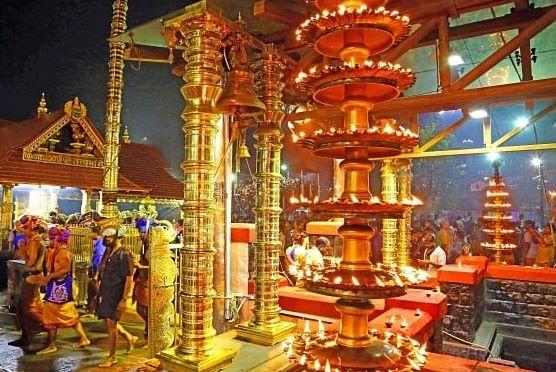
Team News Riveting
Kochi, November 17
The Kerala High Court on Wednesday sought the response of the State government and the Travancore Devaswom Board to a plea seeking directions to immediately stop the use of what is alleged to be “impure Halal Jaggery” for the preparation of Nivedyam/prasad at the Sabarimala temple in Kerala.
A Division Bench of Justices Anil K Narendran and PG Ajithkumar, while directing the State to file its response by tomorrow, also directed the Sabarimala Special Commissioner to file a report on the matter immediately.
The petition was filed by the General Convenor of Sabarimala Karma Samithi, an organization formed to protect the customs and traditions at Sabarimala Temple. He claimed to have worked with Hindu organisations for over a decade and is also a party to the pending proceedings of the Sabarimala case before the Supreme Court of India.
The petitioner argued that Aravana and Unniyappam are the main offerings to Lord Ayyappa at Sabarimala. Nivedyam offered to the deity is distributed as Prasada to devotees. It is highly necessary that Nivedyam is prepared using ‘Satwik/pure’ materials in a clean and hygienic environment. Only if Nivedyam is offered as per the wishes of the deity, the Prasada would carry the blessings of the deity. The use of Halal-certified food materials, which are specifically prepared as per the religious beliefs of another community, is not a ‘Satwik/pure’ material to be offered to Lord Ayyappa. The actions on the part of the temple administration are highly illegal and violative of religious rights guaranteed under Part III of the Constitution of India.
The petition stated that in view of the recent controversy as regards spitting on food materials to make it Halal and the responses from religious scholars, people at large are highly anxious on the use of Halal-certified food materials even for household purposes. It is highly disheartening to see that food materials prepared following the rituals and religious practices of another religion with its certification are accepted as food material for the preparation of Nivedyam/Prasada in a Hindu temple having its own rituals and customs, it said.



